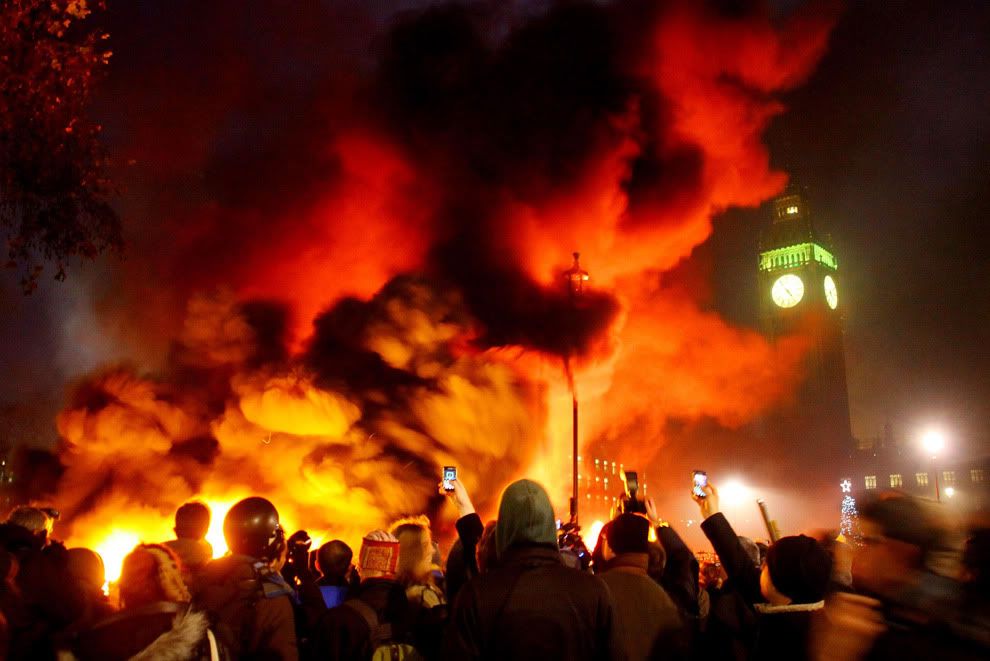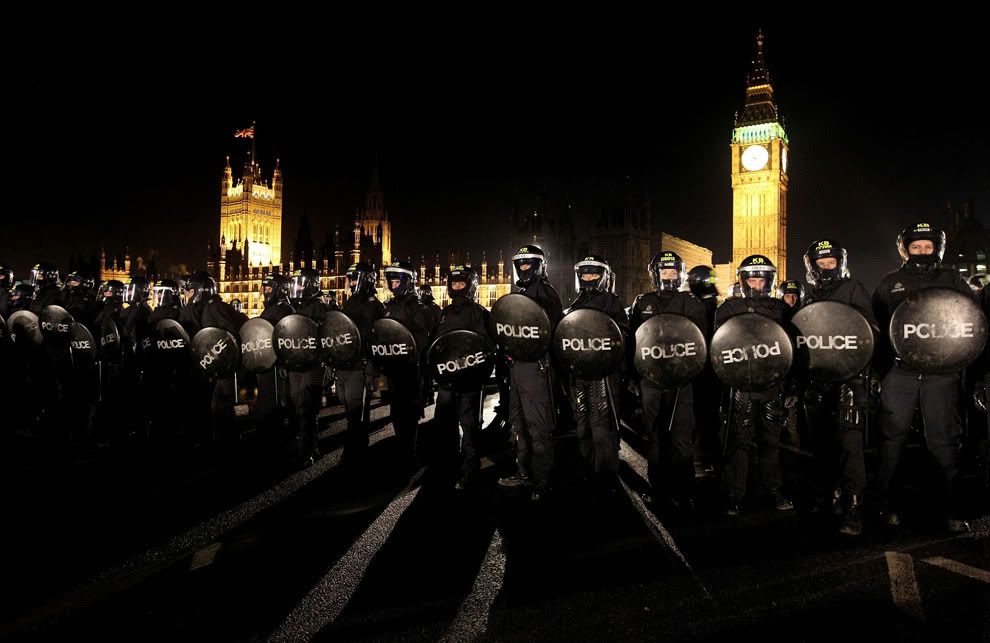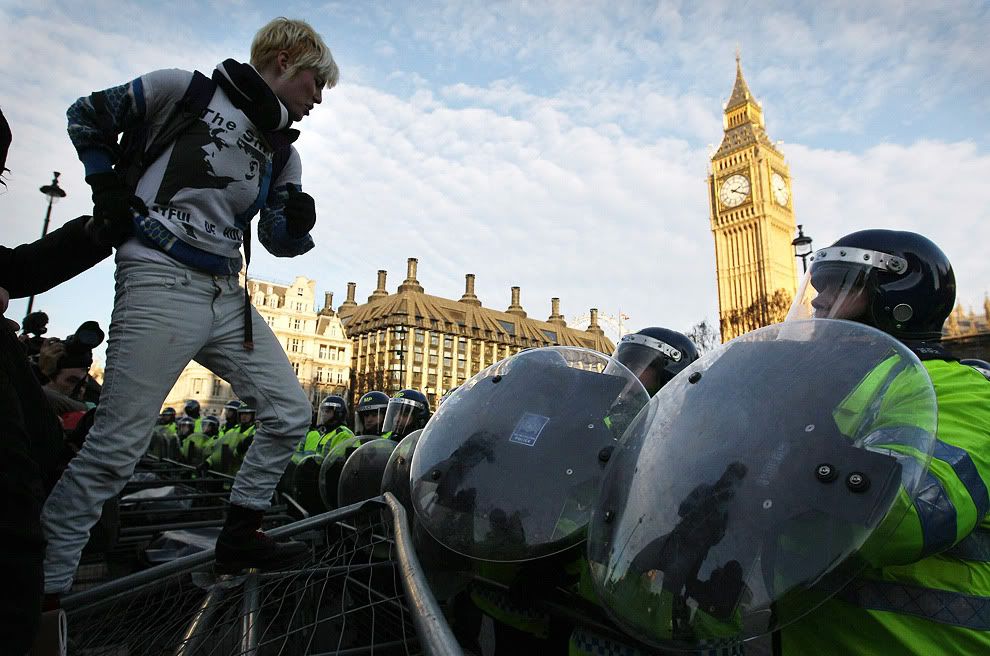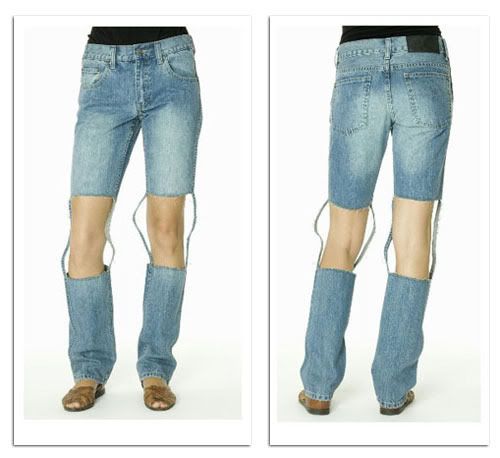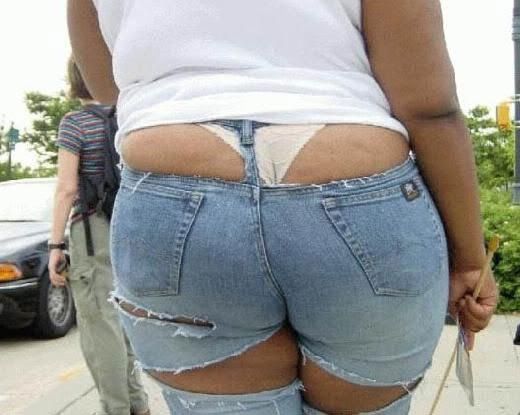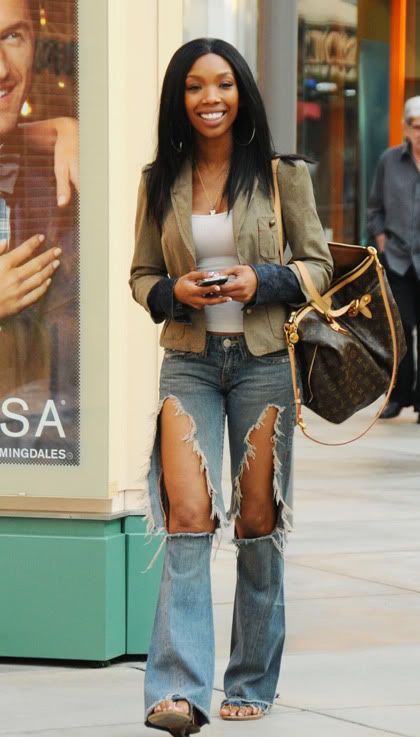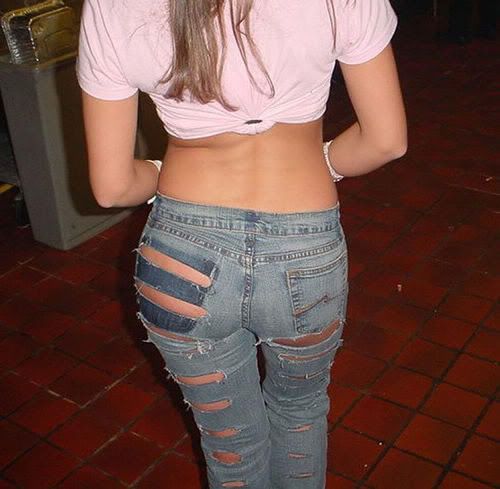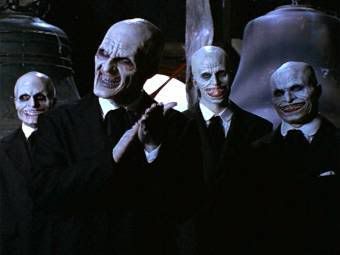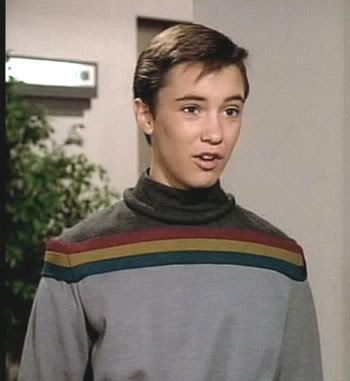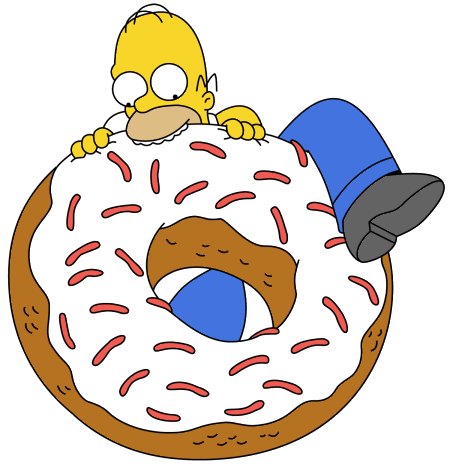Yesterday, the government voted through a rise in tuition fees by a majority of 21 - 302 votes against 323. Meanwhile, the streets of London were overrun with a protest that became nothing short of a battle between the police and the public.
There are dozens of breathtaking photos from Boston's The Big Picture - I've linked to that site before. They're incredible. This is my favourite, but I really do recommend clicking the above link to see the others:
We are living in interesting times, no doubt about that.
I have to say that I was extremely disappointed by the BBC's live coverage on BBC News 24. Their reporter was behind police lines, unable to see anything but projectiles lobbed at the coppers, and certainly unable to see any violence against protesters (which photos, videos and tweets from protesters tell us certainly occurred). Their studio voiceover reflected this, and their emphasis was very much on police injuries sustained, barely mentioning the other side of the story. There were also a lot of leading questions when they interviewed protesters, along the lines of "How can you defend this violence?", never asking the same question of the offices taking batons to the public they're meant to protect.
I'm reluctant to be too opinionated on the violence, as I wasn't there, but it seems clear that there was a lot from both sides. Several police officers were injured, including one who was thrown from his horse, and several students were taken to hospital (or, in some cases, left in the kettle despite urgently needing medical attention). Jody McIntyre was dragged from his wheelchair (
read his account of events here), Guardian journalist Shiv Malik was
beaten until his head was bleeding, and one girl had her collarbone broken although I haven't found her name or the circumstances yet (I think it was a cavalry charge). These are the stories I've heard because, I confess, there's a political bias to the left in the people I follow on twitter, but I will say it again: there was violence on both sides. Too much violence.
Callous and horrible though it sounds, this direction this war takes depends entirely on who dies first. I know, I know! I'm an awful person for even thinking it, but it's true: if an officer dies first, the witch-hunt to find and prosecute anyone involved in the protests will reach unheard-of levels. If a protester is killed by an officer, the public opinion will swing back towards the students. Or there's a third possibility, in many ways the most horrible: a protester will die as a result of another protestor's stupidity.
If this happens, the whole movement will fall apart. Peaceful students will refuse to march with the Socialist Workers; unionists won't want to march with students; and absolutely everybody will scatter as soon as possible anarchists turn up. I would say that this is quite probable, but the police are proving so enthusiastic in their violence that they will most likely, pun unintended, beat us to it.
Every protest displays more violence, more public disorder, and more condemnation from the government and police forces. I'm sorry to say that a death is only a matter of time, because this hasn't ended with the vote. This isn't going to melt into the background; these students are not going to shrug their shoulders, say "Fair enough then, it's the law, what can we do?" because we
know what we can do now.
This. Right or wrong, there'll be more of this in coming weeks.
